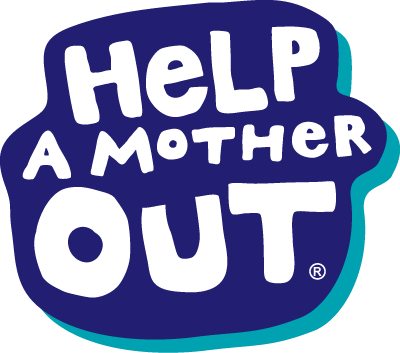Help a Mother Out was delighted to award Jessica Bartholow, Policy Advocate at the Western Center on Law and Poverty, with the Community Impact Award at our 2017 Annual Benefit Tea last weekend. Her acceptance speech, which so eloquently spoke to the issue of diaper need, is presented below.
"I’m so very honored to be honored today, not only for the recognition of my work but also because it comes from you - Help a Mother Out. Help a Mother Out is one of the most forward thinking Diaper Banks in the Country, developing model programs and strategies to meet unmet diaper need that are serving up ideas for the rest of the state and, in fact, the rest of the country. So thank you.
I’ve been asked to say a couple of words today about the problem of unmet diaper need and the work we are leading together as a community of people who want to protect those very special months following the birth of a child when important developmental goals of an infant and toddler will be met…or they won’t.
When a family is unable to afford the 8-12 diapers needed daily for an infant, they simply use fewer diapers, which means that babies will linger, uncomfortable and unhappy, for longer periods of time in diapers that contains urine and feces. Prolonged exposure to urine and fecal matter breaks down the natural defenses of the infant’s skin and resulting in a painful diaper rash. Without an adequate supply of diapers, a simple rash can turn in to a more complicated rash that requires medication. And, because poor children are already more likely to experience illness than other children, unmet diaper needs both increases the likelihood of illness and undermines one tool used to treat illness resulting in diarrhea or rash.
Unmet diaper needs don’t only impact the physical health of a child, but also their mental health and future potential. This is because parents who are unable to adequately diaper their children are more likely to experience maternal depression, a condition associated with reduced maternal-child interaction known to undermine school readiness among poor children.
Lack of maternal interaction and infection isn’t the only danger to these infants and toddlers.
Research has shown that children living in conditions where their basic needs go unmet not only experience depravity of not having those needs met, but are also deeply impacted by the toxic stress that results from chronically unmet needs. Toxic stress is defined as a consistent, high level of stress which has the physiological impact of increased levels of cortisone, which leads to diet related disease, and structural impacts on their brain development. In my opinion, most cruel result of toxic stress for infants and toddlers is that, as brain researchers have found, it undermines the structure of the part of their brain that supports “coping” – one could argue is one of the most important skills they will need to grow up in poverty and to eventually exit it.
Finally, lack of adequate diaper supply can interrupt or prevent participation in early learning settings. Most early learning childcare settings require families to bring their own diapers. So even when the price of childcare is subsidized, a poor infant and toddlers may be kept from reaping the many benefits of participating in an early child education setting because their parents are unable to afford the number of diapers required by the center. Consequently, when a family is unable to provide for the mandatory diapers required by the child care center, the parent(s) are also unable to participate in work or training programs to help them lift themselves out of poverty.
So much of what Help a Mother Out, and other similar organizations around the country, do is focused on a the logistics of getting diapers and diaper products into the hands and onto the tiny little chubby butts of infants and toddlers. This work is essential – it can interrupt the toxic stress low-income families experience. Adequate, regular access to diapers and diaper products not only prevent negative infant health impacts and related pain and suffering of babies – but they are an important paver bricks in the path out of poverty for these families with low-income families.
So today, as we celebrate the volunteers, staff and donors of Help a Mother Out, I hope all of us can be proud that this work is not just about covering the cute little heinies of Bay Area babies as they take their first steps but also protecting their life opportunities and each step along the way."
Jessica Bartholow is a Policy Advocate with nearly two decades of experience in anti-poverty organizing, advocacy and program development at the local, state and national level. Jessica has co-authored several advocate and program guides and led a coalition to support the passage of several pieces of signed legislation that improve public benefits delivery, consumer protections and financial empowerment for low-income Americans. Jessica holds a Master’s Degree in Political Science and is the 2012 recipient of the Wellstone -Wheeler National Anti-Hunger Advocate of the Year Award.
